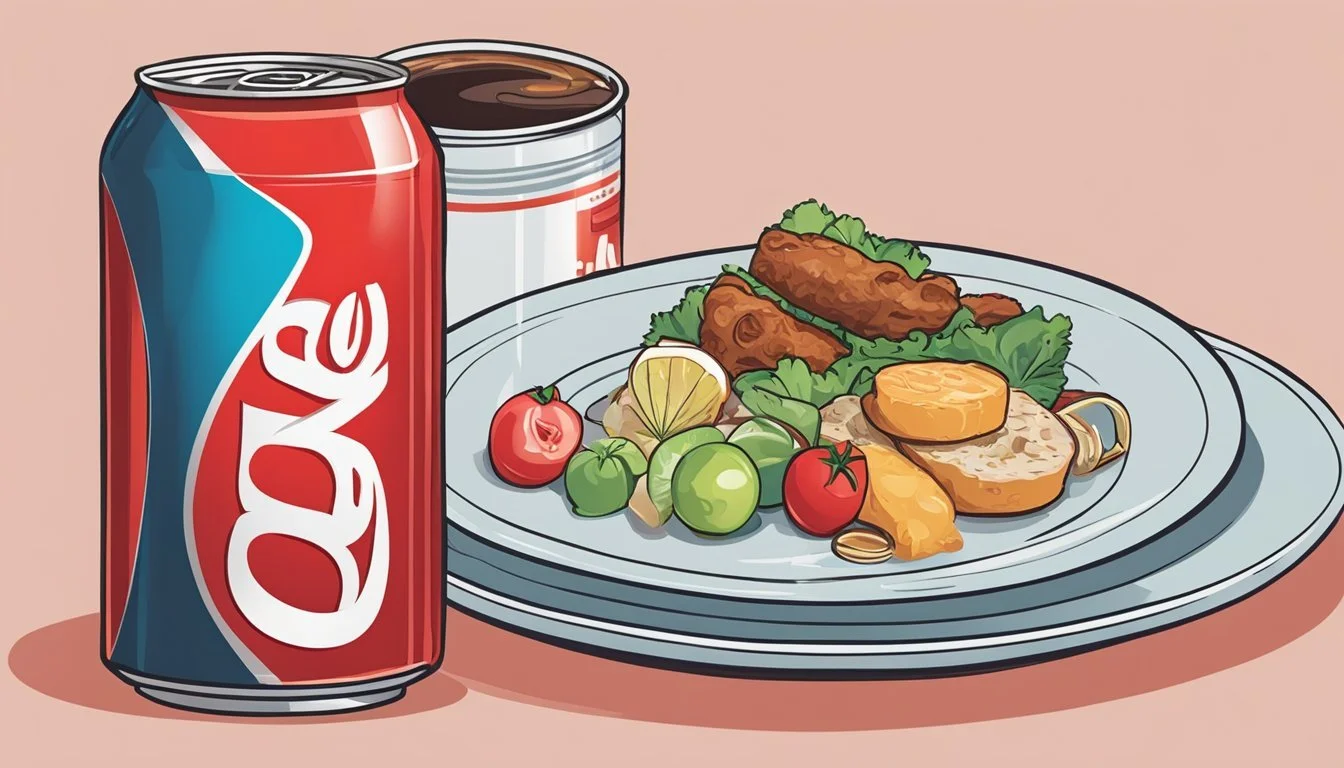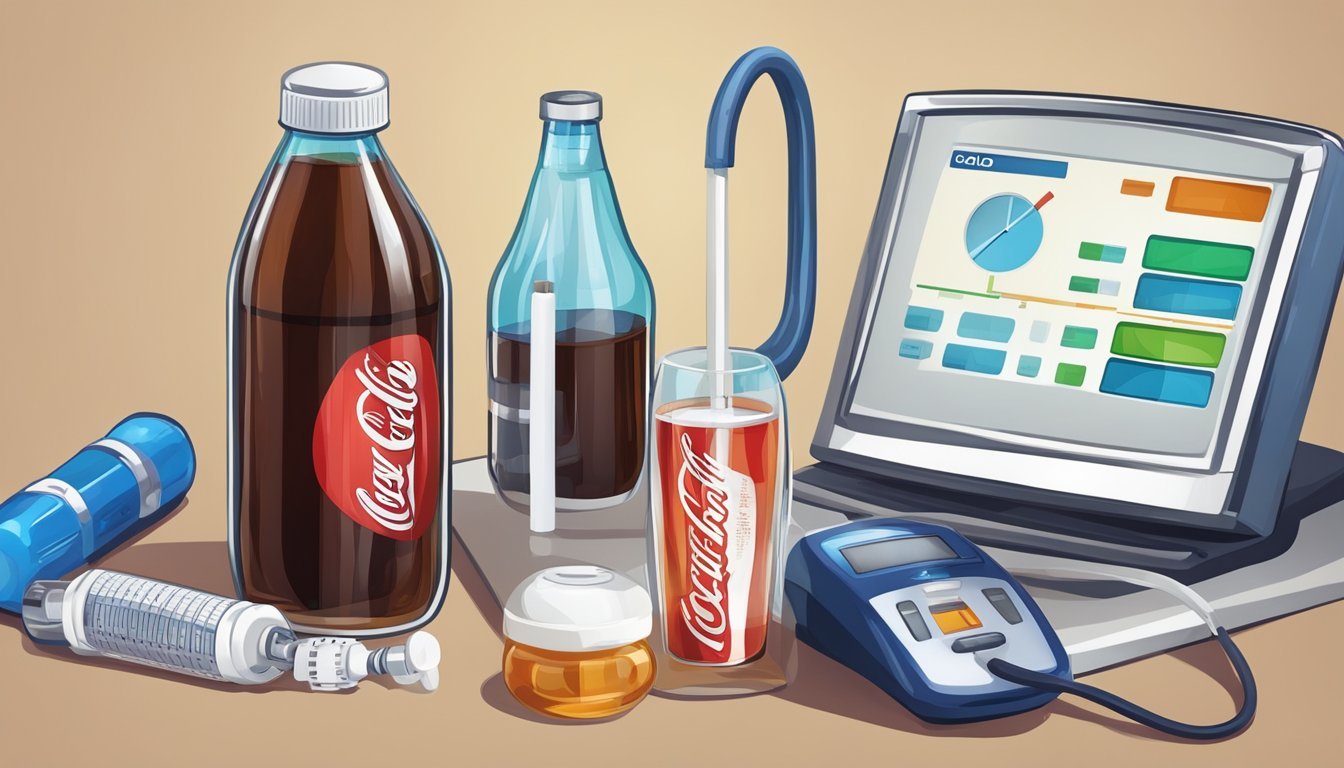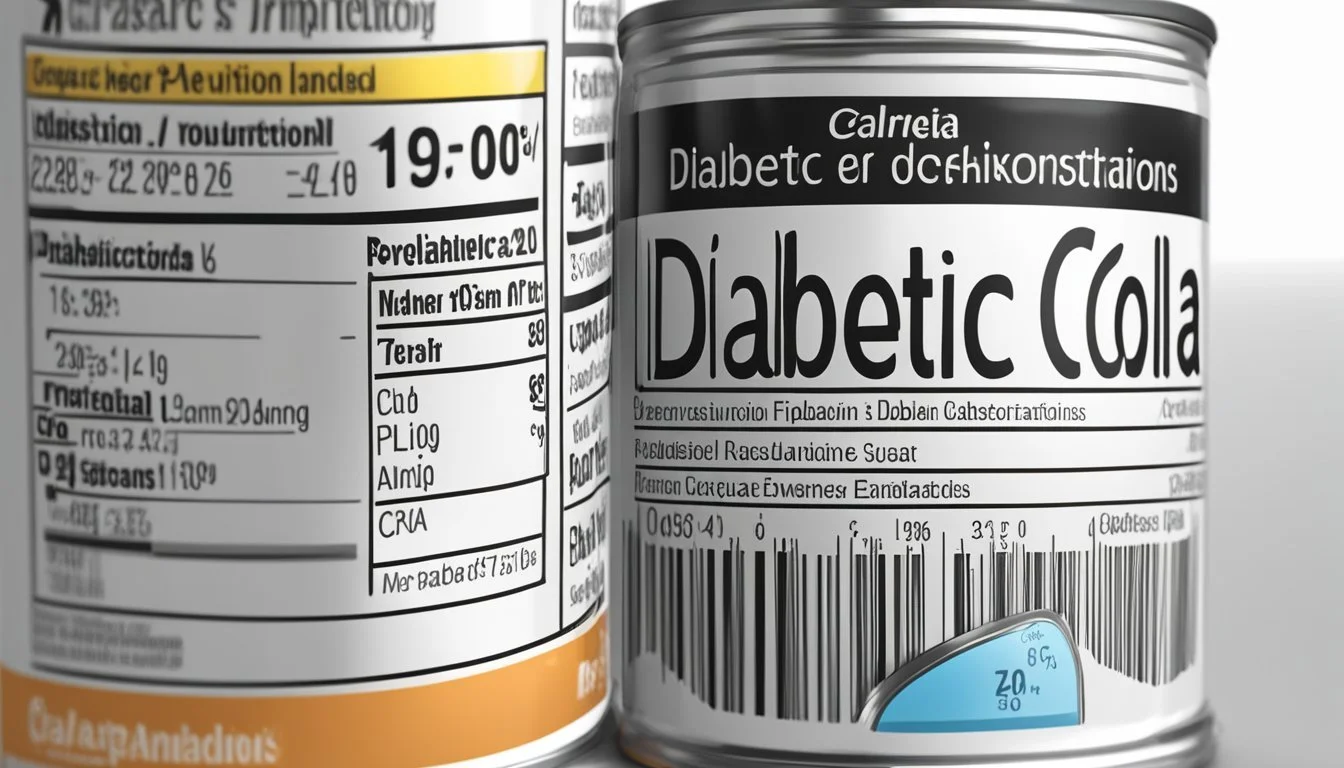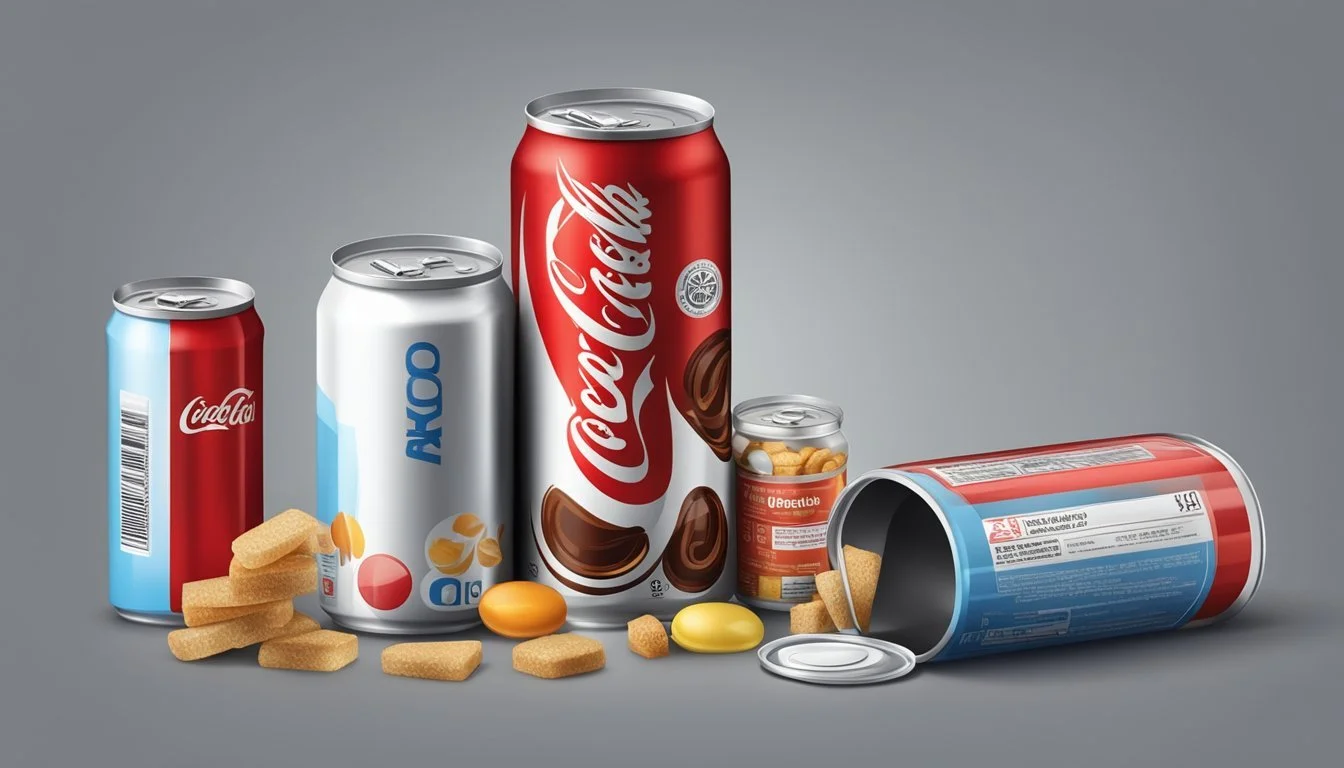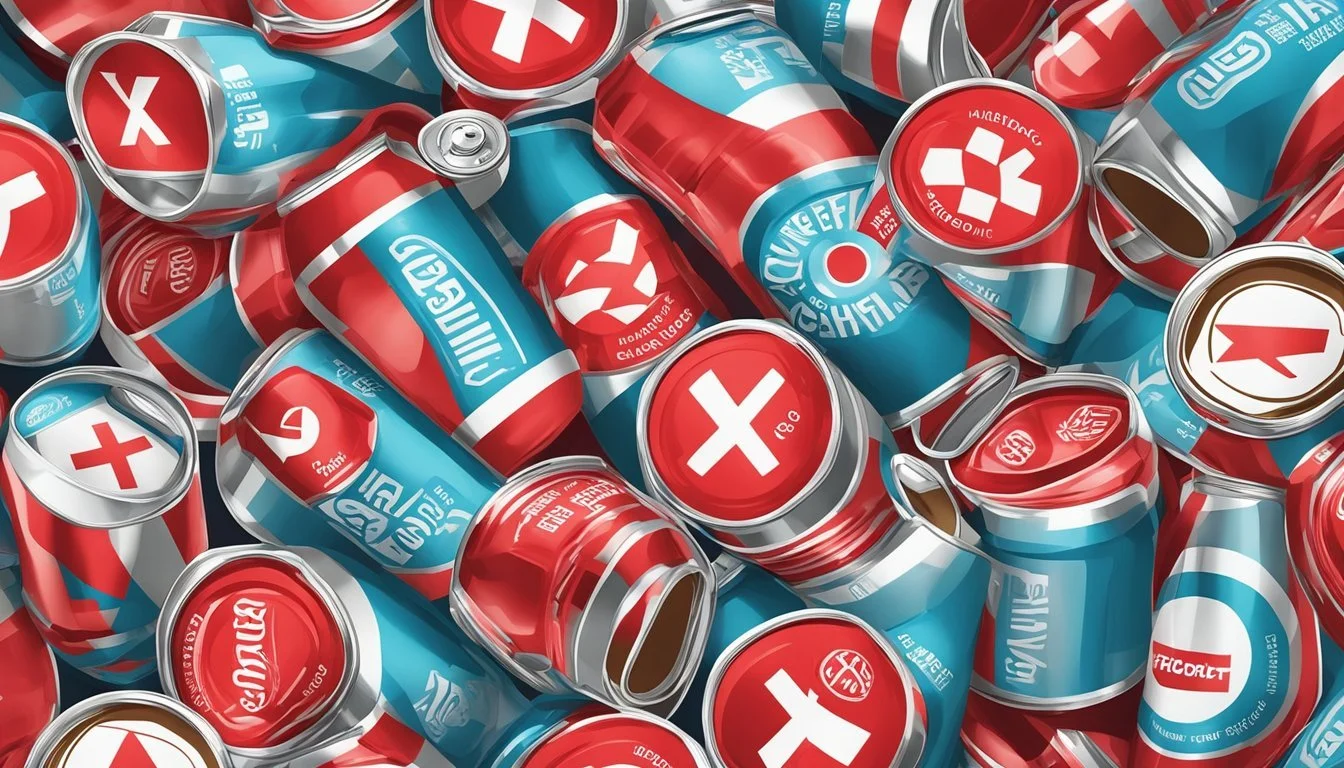Can Diabetics Eat Regular Cola?
Expert Insights on Sugar and Health
When managing diabetes, diet plays a crucial role in maintaining blood sugar levels. One common question is whether diabetics can consume regular cola. The short answer is that regular cola is not recommended for individuals with diabetes due to its high sugar content, which can cause significant spikes in blood glucose levels.
Regular cola contains a substantial amount of sugar, leading to rapid increases in blood sugar that can be challenging to control. For those with diabetes, it's pivotal to choose beverages that do not exacerbate their condition. Opting for diet beverages, unsweetened tea, or water can be better alternatives.
Understanding the impact of regular cola on blood sugar is essential for anyone managing diabetes. By making informed choices about what to drink, individuals can better control their blood glucose levels and overall health.
Understanding Diabetes and Cola Consumption
Diabetes, particularly Type 2 diabetes, is a chronic condition characterized by high blood sugar levels due to insulin resistance or inadequate insulin production. Managing blood glucose is critical for diabetics to avoid complications such as heart disease and high blood pressure.
Regular cola contains significant amounts of sugar. A typical 12-ounce can of Coca-Cola has 39 grams of sugar, sourced from both white sugar and high fructose corn syrup. For diabetics, this can pose a significant challenge in maintaining stable blood sugar levels.
According to dietary guidelines, diabetics should aim to keep their sugar intake to no more than 10 percent of their daily calories. Consuming a single can of regular cola can quickly approach this limit, making it difficult for them to control blood sugar effectively.
High sugar intake from beverages like regular cola can contribute to obesity and metabolic syndrome, both of which exacerbate prediabetes and diabetes. Additionally, consuming sugary drinks regularly is linked to an increased risk of heart disease and high blood pressure.
To maintain healthier blood glucose levels, diabetics are advised to limit or avoid regular cola and opt for healthier beverage choices, such as water or unsweetened teas. This can help mitigate the risk of spikes in blood sugar and manage weight more effectively.
Effects of Regular Cola on Blood Sugar Control
Regular cola contains significant amounts of sugar. When consumed, the body rapidly digests these sugars, causing a spike in glucose levels. This spike can be particularly concerning for diabetics, as maintaining stable blood sugar levels is crucial.
A typical 12-ounce can of regular soda has around 150 calories and 40 grams of carbohydrates. This carbohydrate content translates directly into glucose upon digestion. Such a high intake of sugar leads to elevated blood sugar levels in a short amount of time.
The rapid increase in blood sugar triggers the pancreas to release insulin to help manage this glucose. Insulin resistance can develop from frequent consumption, which impairs the body's ability to use insulin effectively. This resistance makes it harder for individuals with diabetes to control their blood sugar levels.
Insulin resistance is particularly problematic as it leads to persistently high blood sugar levels. Over time, sustained elevated glucose levels can cause various complications such as nerve damage, kidney issues, and cardiovascular problems. Managing sugar intake is key to preventing these outcomes.
Key Points:
Sugars in regular cola can quickly raise blood sugar levels.
High carbohydrate content (about 40 grams per can) leads to rapid glucose increases.
Frequent intake can contribute to insulin resistance, making blood sugar control more challenging.
Persistent high blood sugar can lead to serious long-term health issues.
In summary, regular cola's high sugar and carbohydrate content pose significant challenges to blood sugar control for diabetics, making consumption risky. Maintaining stable glucose levels is essential, and regular cola can undermine these efforts.
Alternative Beverage Choices for Diabetics
Diabetics have several beverage options that can help manage blood sugar levels while still providing flavor and variety. Here are some alternatives to regular cola that include both diet and naturally sweetened options.
Diet Sodas and Artificial Sweeteners
Diet sodas use artificial sweeteners instead of sugar, making them a popular choice for diabetics. Common sweeteners include aspartame, sucralose, saccharin, and acesulfame potassium. These sodas generally have fewer calories and carbohydrates.
However, some people may prefer avoiding artificial ingredients. It's essential to read labels to understand which sweeteners are used. Splenda and stevia are also widely used and are often perceived as safer alternatives. Always consult a healthcare provider regarding the consumption of diet sodas and artificial sweeteners.
Natural Drink Options
For those who prefer more natural beverages, options like unsweetened tea (green, black, or herbal tea), seltzer water, and mineral water can be excellent choices. These drinks contain no added sugars and often come with additional health benefits.
For a touch of flavor, consider fruit-infused water or 100 percent fruit juice in moderation, as they can still impact blood sugar levels. Milk alternatives like almond or soy milk can offer delicious and diabetic-friendly options without the sugar content of regular milk.
Understanding Labels and Ingredients
Reading labels is crucial. Look for drinks labeled sugar-free or unsweetened. Avoid beverages with high carbohydrate counts or those containing significant amounts of added sugars. Caffeine content should also be monitored, especially in coffee and tea.
When selecting fruit juices, ensure they are 100 percent fruit juice with no added sugars. Vegetable juice can be a lower-sugar alternative but watch for sodium content. Choosing sparkling water or seltzer without added sugars can be a refreshing way to stay hydrated without impacting blood sugar levels.
By selecting the right beverages, diabetics can enjoy variety and flavor while managing their health effectively.
Nutritional Considerations for Diabetics
When managing diabetes, making careful dietary choices is crucial.
Carbohydrates can significantly impact blood sugar levels. Diabetics should aim to consume carbohydrates from whole grains, fruits, and vegetables. These sources provide essential vitamins, minerals, and fiber. It's recommended that carbohydrates should make up a balanced portion of the diet, preferably around 60-70% as part of a healthy meal plan.
Monounsaturated fats are beneficial in moderation. They can be found in foods like nuts, olive oil, and avocados.
Protein intake is also important. Lean protein sources, such as fish, poultry, beans, and tofu, should be prioritized. Protein helps in maintaining muscle mass and can support weight management, which is often a crucial part of diabetes care.
Obesity is a significant risk factor for diabetes. Therefore, it is important to monitor calorie intake to avoid weight gain.
In terms of sugar intake, sucrose and sucrose-containing foods should be limited. Sugary drinks like regular cola can cause spikes in blood glucose levels and should be consumed sparingly, if at all.
Fruits and vegetables should form a large part of a diabetic's diet. They provide essential vitamins and minerals with lower calorie content.
Moderation is key in all aspects of diet for diabetics to ensure balanced nutrition and effective blood sugar management.
Lifestyle and Dietary Adjustments
Managing diabetes effectively involves creating a balanced diet plan and integrating regular exercise into daily routines. Both aspects are crucial for maintaining blood sugar levels and overall health.
Creating a Balanced Diet Plan
A healthy diet for diabetics should focus on controlling blood sugar levels and promoting weight loss or maintenance. It is important to include a variety of nutrient-rich foods like vegetables, whole grains, lean proteins, and healthy fats.
Processed foods and sugary beverages, such as regular cola, should be avoided due to their impact on blood sugar. Incorporating high-fiber foods can help slow the absorption of sugar, which helps maintain better glucose control.
Hydration is another key factor, as adequate water intake supports overall bodily functions and can prevent excessive sugar consumption from beverages. Planning meals and snacks to avoid large blood sugar fluctuations is essential for effective diabetes management.
Importance of Exercise and Physical Activity
Regular physical activity plays a significant role in managing diabetes. It helps improve insulin sensitivity, making it easier for cells to use available sugar in the bloodstream. Activities such as walking, cycling, and strength training can be particularly beneficial.
Exercise can also contribute to weight loss or maintenance, which is critical for diabetes management. Engaging in at least 150 minutes of moderate-intensity aerobic activity each week is recommended.
In addition, incorporating daily routines that reduce sedentary behavior, such as taking short walks after meals, can be very effective. Ensuring the integration of physical activity into everyday life helps consistently regulate blood sugar levels.
Health Risks Associated with Regular Cola
Consumption of regular cola can pose significant health risks, particularly for diabetics. Sugary drinks like cola contribute heavily to daily sugar intake. One 12-ounce can of cola contains approximately 39 grams of sugar. This high sugar content can lead to several chronic conditions.
Obesity: Regular cola is calorie-dense but nutrient-poor, promoting weight gain. Excessive sugar consumption is a well-established risk factor for obesity, which compounds diabetes management challenges.
Heart Disease: High sugar intake from cola can increase the likelihood of heart disease. This is due to its contribution to weight gain, high blood pressure, and elevated blood triglyceride levels.
Kidney Disease: Regular cola consumption is linked to kidney disease. The combination of high sugar and caffeine can impair kidney function over time. Individuals with diabetes are already at risk, and cola can exacerbate this condition.
Eye Disease: Long-term consumption of sugary drinks has been connected to diabetic retinopathy, a serious eye condition. High blood sugar levels can damage retinal blood vessels, leading to vision impairment or loss.
Nerve Damage: Excessive cola consumption can contribute to high blood glucose levels, which lead to nerve damage over time. Diabetic neuropathy, characterized by pain and numbness, is a common complication.
Cavities: The high sugar content in cola is a major cause of cavities. Sugar feeds harmful bacteria in the mouth, producing acid that erodes tooth enamel.
Chronic Disease: Regular intake of sugary drinks is linked to various chronic diseases, such as type 2 diabetes, that complicate health management.
Stroke: Increased sugar consumption from drinks like cola can influence stroke risk factors, including high blood pressure and obesity. Regular cola elevates these risks, affecting overall cardiovascular health.
Health Organizations' Stance on Soda
American Diabetes Association (ADA) recommends that individuals with diabetes avoid regular soda due to its high sugar content. Regular soda can cause significant spikes in blood glucose levels, which can be detrimental for managing diabetes.
The Mayo Clinic echoes this sentiment, advising those with diabetes to steer clear of sugary drinks. Regular soda, with its high fructose corn syrup, offers no nutritional benefit and poses a risk for blood sugar control.
Research published in the American Journal of Clinical Nutrition highlights the negative impact of sugary beverages on diabetes management. Studies indicate that regular soda can worsen insulin resistance, a key issue for those with Type 2 Diabetes (T2D).
T2D Healthline also identifies regular soda as a harmful choice for those managing diabetes. The platform emphasizes that the empty calories and high sugar content make it an unhealthy option, potentially leading to weight gain and further complications.
Organization Stance on Soda American Diabetes Association Advises avoidance due to high sugar content Mayo Clinic Recommends steering clear of sugary drinks American Journal of Clinical Nutrition Highlights negative impact on diabetes management T2D Healthline Identifies as harmful, leading to complications
Artificial sweeteners in diet sodas such as Coke Zero may offer a safe alternative. They have minimal or no impact on blood glucose levels, making them a potentially better choice for diabetics. Areas of controversy exist, but for now, these organizations agree on the harmful effects of regular soda.
Conclusion
People with diabetes should be cautious when considering regular cola.
Regular cola is high in sugar and can cause significant spikes in blood sugar levels. This can be particularly problematic for both type 1 and type 2 diabetes patients.
Moderation is crucial. Even occasional consumption can impact overall blood sugar management.
Alternatives such as diet cola may seem beneficial due to their lack of sugar. However, the artificial sweeteners in diet colas can still have other health implications.
Safe beverage options for diabetics include unsweetened coffee and tea, low-fat milk, and water.
Smoothies made with low-glycemic fruits and sugar substitutes can also be a good choice.
Alcoholic beverages should be consumed with caution and in moderation due to their varying effects on blood sugar.
In summary, it's best to limit regular cola and opt for healthier drink alternatives to manage diabetes effectively.

